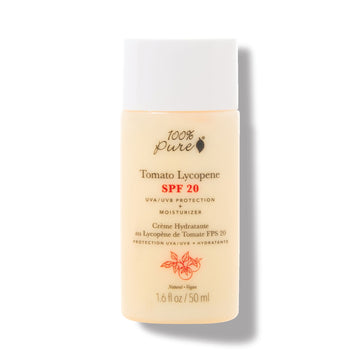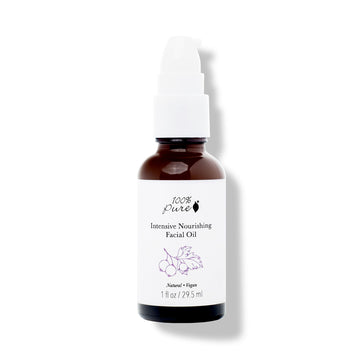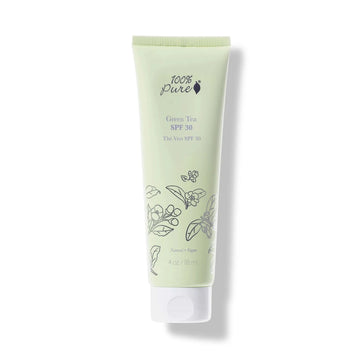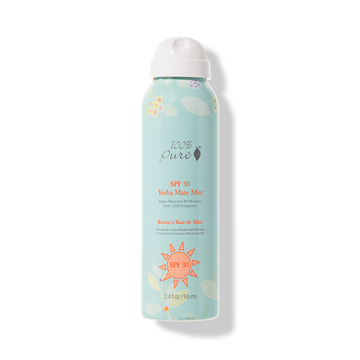Answering your burning questions – so that your skin won’t!
Written by: 100% PURE ®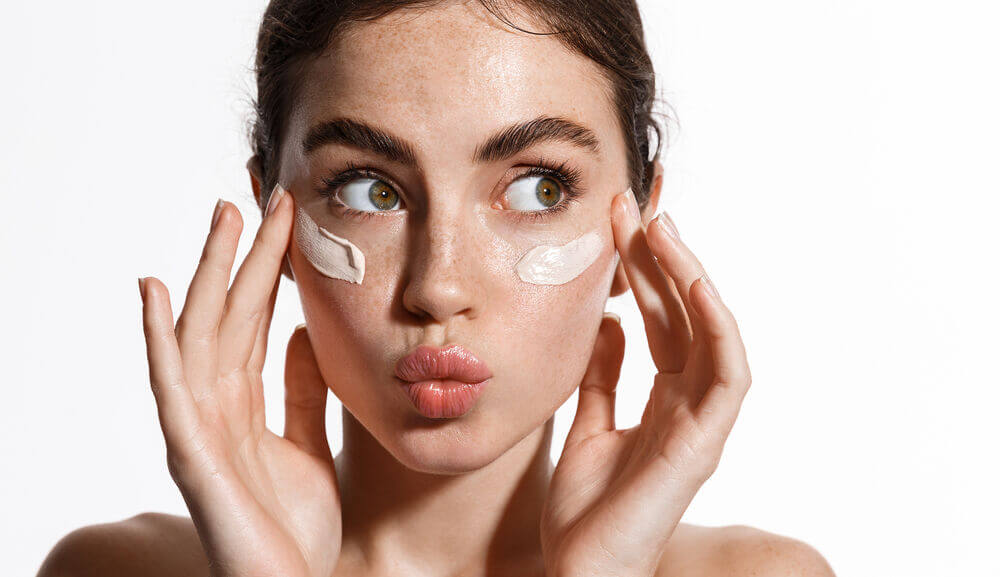
Sunscreen is meant to protect your skin from the sun’s UV rays, and it’s hard to exaggerate how important this one product is for your skin. It’s often said that cigarette smoking and tanning beds are the two worst things you can do for your skin; skipping sunscreen is right up there in terms of long-term damage.
UVA light penetrates all levels of the skin, from the epidermis down to the dermis; it can negatively affect the collagen and elastin fibers that keep your skin taut and elastic. UVB light reaches the epidermis; it can cause photoaging, damage DNA, and trigger the formation of precancerous cells.
While skin cancer is certainly the most serious result of sun damage, sun exposure can cause a host of problems for your skin. First, sunburn is a short-term – though painful – condition. Sun exposure can also cause long-term issues like hyperpigmentation, dryness, leathery skin, and premature wrinkles.
Luckily, you can prevent sun damage by minimizing your sun exposure!
Simply staying in the shade, covering your skin, and wearing a hat are all great strategies. In addition to taking these precautions, using sunscreen every day is a must.
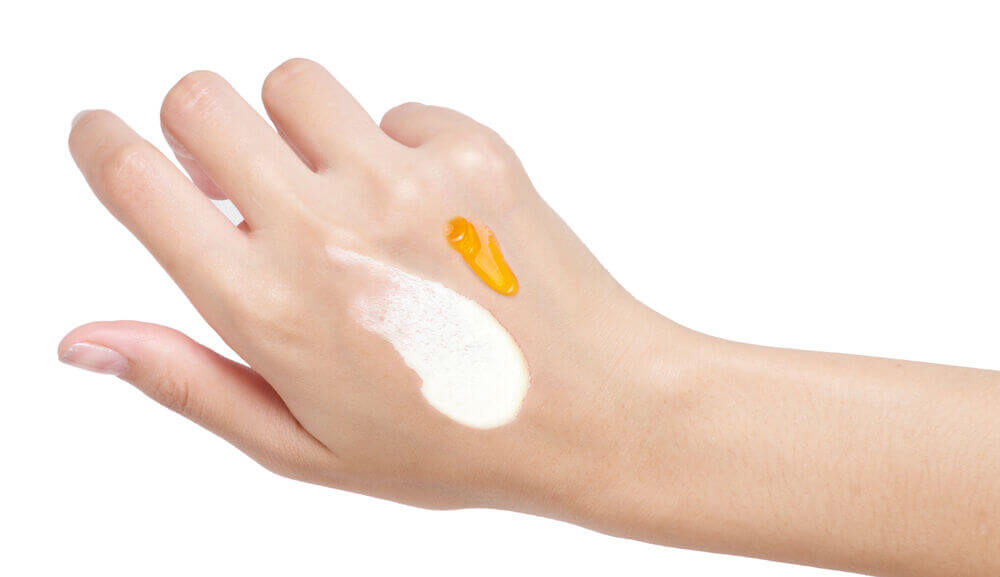
That being said, sunscreen must also be worn correctly – and yes, there are wrong ways to wear it. This is especially true when considering when to apply sunscreen during your skin care routine.
Let’s answer some of the most common questions about wearing sunscreen, and dispel a few of the top SPF myths!
If I apply sunscreen in the morning, am I good for the rest of the day?
No. Sunscreen is, unfortunately, not effective all day long and will degrade (break down and become less effective) the longer you wear it. Best practice is to apply sunscreen every 90 minutes to 2 hours, at least 15-30 minutes before going outside. If you’re swimming or sweating, reapply it immediately after rinsing off or towel-drying.
How much sunscreen do I need to apply?
For many products, less is more. But in the case of sunscreen, that’s not exactly true. Sunscreen should be applied to any surface of skin not already covered by clothing; not just the face, but the shoulders, chest, forearms, and legs. Do not underestimate the sun’s reach!
In terms of how much you’ll need to apply: the face should receive about half a teaspoon, while a shot glass should cover the whole body.
Should I wear my regular moisturizer on top of or below my sunscreen?
When to apply sunscreen during your skin care routine depends on the type of sunscreen you’re using. If you’re using a chemical sunscreen, apply it before your moisturizer because it needs time to absorb into the skin.
In the case of physical or “mineral” sunscreens, you’re basically creating a veil or filter over your skin, so these should be applied after your moisturizer.
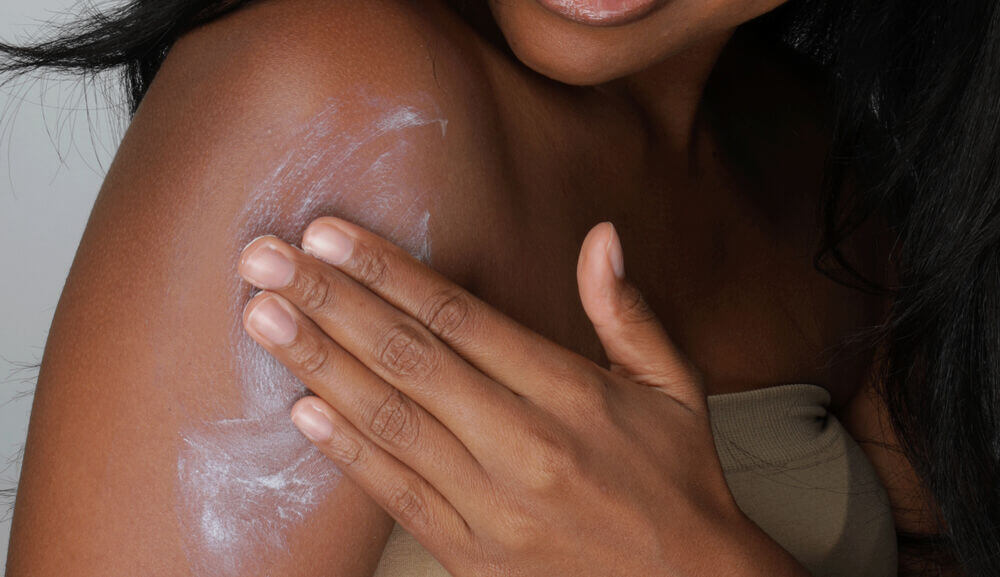
Can I mix sunscreen with moisturizer?
Many influencers claim that mixing sunscreen with moisturizer helps create a nice finish on their skin. This is not recommended, since moisturizer can dilute and reduce the effectiveness of your SPF. Sunscreen and moisturizer should be applied as two separate steps; unless you find a sunscreen that is marketed as a moisturizer + SPF in one.
My foundation says it has SPF – is that enough?
When foundation contains SPF, it should be viewed as a supplement to your sunscreen – not a replacement. These hybrid products tend to have a very small amount of UV-blocking ingredients. In order for it to be effective, you would actually need to apply a lot of it, to the point where your skin looks unnaturally cakey.
Do I apply facial oil before or after sunscreen?
Again, this depends on the type of sunscreen you’re using. If you’re using a chemical sunscreen, apply it before your facial oil to allow it to properly absorb. If you’re using mineral sunscreen: apply your facial oil, let it absorb for 2-3 minutes, and then apply your sunscreen.
Can I reapply my sunscreen over makeup?
As we discussed above, sunscreen needs to be reapplied – and it would sure be a pain to reapply to your makeup, too! Luckily, there are options that make reapplying sunscreen over your makeup a bit easier.
Here are a few options that use mineral sunscreens instead of chemical to protect the skin (and leave makeup undisturbed):
Yerba Mate Mist SPF 30 - the cleanest product on this list; apply it with a kabuki brush for a light touch that won’t disturb your makeup
Supergoop (Re)setting 100% Mineral Powder - made with pigments for a true setting powder effect
Tarte SEA Set & Protect Sunscreen Powder - comes with a built-in brush-on applicator
If I wash my face, should I reapply sunscreen?
It depends on the time of day; if you’ll be exposed to the sun at any point after washing your face, the answer is yes: reapply your sunscreen. Example: washing your face before a midday gym visit. But if you’re washing your face because it’s the end of the day, no need! Simply follow your evening routine as normal.
To know when to apply sunscreen during your skin care routine, consider the type of sunscreen you use: chemical or physical.
We personally prefer physical sunscreens because their natural, mineral-based formulas are kinder on our skin and the planet. Chemical sunscreens, on the other hand, use harmful ingredients like oxybenzone. These chemicals can lead to health-related issues, and contribute to coral bleaching in our oceans – a huge problem for aquatic life.
And while chemical sunscreens can be confusing to use, physical sunscreens hold an easy rule of thumb: it should always be applied last whenever possible.
Sunscreen should be the very last step in your skin care routine, though it can go under your makeup. Another important thing to note is that once sunscreen is applied, you’ll want to disrupt it as little as possible.
When sunscreen is properly applied, your whole regimen is going to work better in the long run. And best of all is that, whether it’s 10 or 20 years from now, your skin will thank you for the protection.
We carefully hand-select products based on strict purity standards, and only recommend products we feel meet this criteria. 100% PURE™ may earn a small commission for products purchased through affiliate links.
The information in this article is for educational use, and not intended to substitute professional medical advice, diagnosis, or treatment and should not be used as such.


